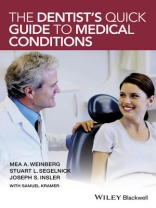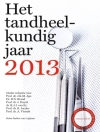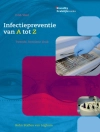With increasing numbers of dental patients being elderly or having
medical conditions, it is important for the dentist to understand
how these conditions may impact dental treatment. The
Dentist’s Quick Guide to Medical Conditions presents the
relevant information dentists need–symptoms, diagnostic
tests, medications prescribed, and dental management–for each
disease and condition. Chapters will focus on each major bodily
system, including respiratory, cardiovascular, hematologic,
endocrine, gastrointestinal, immune, nervous, reproductive, and
urinary, as well as chapters on the liver, kidneys, skin, and
psychological conditions. Appendices list guidelines for antibiotic
prophylaxis, additional conditions requiring antibiotics, and a
quick list of diagnostic tests.
表中的内容
Contributors x
Foreword xi
Preface xii
1 Gastrointestinal disorders 1
A. Peptic ulcer disease 1
B. Gastroesophageal reflux disease 4
C. Irritable bowel syndrome 6
D. Inflammatory bowel disease 7
a. Crohn’s disease 7
b. Ulcerative colitis 10
E. Diverticular disease 11
F. Acute pancreatitis 12
G. Celiac sprue 13
H. Pseudomembranous colitis 13
2 Medical conditions of the respiratory system 17
A. Respiratory diseases 17
a. Asthma 17
b. Chronic obstructive pulmonary diseases 23
c. Pulmonary tuberculosis 24
d. Obstructive sleep apnea 27
3 Disorders of the urinary system 30
A. Acute renal injury and chronic kidney disease 30
B. Kidney dialysis 37
C. Kidney transplant 39
D. Polycystic kidney disease 42
E. Benign prostatic hypertrophy 42
4 Diseases of the endocrine system 46
A. Diabetes 46
B. Thyroid diseases 50
C. Adrenal gland disorders 53
5 Disorders of the cardiovascular system 59
A. Hypertension 59
B. Angina Pectoris 68
Clinic 68
C. Myocardial infarction 70
D. Heart failure 73
E. Arrhythmias 75
F. Valvular heart disease 78
G. Epinephrine in cardiac patients 79
6 Pregnancy, lactation, and oral contraceptives 82
A. Pregnancy and lactation 82
B. Oral contraceptives 89
7 Disorders of the liver and gallbladder 93
A. Liver disease 93
a. Alcoholic liver disease and cirrhosis 98
b. Hepatitis 99
c. Liver transplant 103
B. Gallstones 105
8 Diseases of the neurological system 109
A. Parkinson’s disease 109
B. Multiple sclerosis 113
C. Seizures 116
9 Psychiatric disorders 125
Introduction 125
A. Antipsychotics 126
a. Typical antipsychotics 127
b. Atypical antipsychotics 128
c. Anticholinergic medications 128
B. Antidepressants 132
a. Monoamine oxidase inhibitors 133
b. Tricyclics and tetracyclics 134
c. Selective serotonin reuptake inhibitors 135
d. Selective serotonin norepinephrine reuptake inhibitors (SNRIs) 136
e. Others 136
f. Summary: Dental interactions and side effects 136
C. Mood stabilizers 138
a. Lithium 139
b. Valproic acid (Depakote) 140
c. Lamotrigine (Lamictal) 140
d. Carbamazepine (Tegretol) 141
e. Oxcarbazepine (Trileptal) 141
D. Alcohol and other drugs with addictive potential 142
a. Alcohol 142
b. Sedatives and hypnotics 143
c. Opioids 143
d. Cocaine 145
10 Hematologic disorders and drugs that cause bleeding 149
A. Brief overview of the coagulation process 149
a. Thrombocytopenia 152
b. Thrombocytopathy 153
c. Antiplatelet medications 153
B. Bleeding disorders: Coagulation disorders 154
a. von Willebrand disease 154
b. Hemophilias 155
c. End-stage liver disease 156
d. Anticoagulation medications 157
11 Blood dyscrasias 171
A. Red blood cell disorders 174
a. Anemia 174
b. Myeloproliferative disorders 181
B. White blood cell disorders 182
a. Leukemia 182
b. Lymphoma 186
c. Multiple myeloma 187
12 Musculoskeletal and connective tissue disorders 193
A. Osteoporosis 193
B. Osteoarthritis 197
C. Rheumatoid arthritis 198
D. Gout 201
E. Fibromyalgia syndrome 203
F. Systemic lupus erythematosus 205
G. Sjögren’s syndrome 208
13 HIV and oral health care 214
14 Radiation and chemotherapy 237
Appendices
Appendix A Antibiotic prophylaxis of the dental patient 252
Appendix B Common dental drug interactions 255
Appendix C Summary of tables/boxes 266
Appendix D Interpretation of common laboratory values 270
Index 274
关于作者
Mea Weinberg, DDS, MSD, RPh, is a practicing periodontist and
licensed pharmacist, giving her unique experience and insight into
medical conditions and their impact on dental treatment. She is a
clinical associate professor of periodontology and implant
dentistry at New York University. Dr. Weinberg has authored and
co-authored numerous journal articles and has co-authored three
books, including The Dentist’s Drug and Prescription
Guide (Wiley, 2012).
Stuart Segelnick, DDS, MS, is in private practice in Brooklyn, New
York, and a clinical associate professor of periodontology and
implant dentistry at the New York University College of Dentistry.
Dr. Segelnick contributed as a consulting editor for The
Dentist’s Drug and Prescription Guide (Wiley,
2012).
Joseph Insler, MD, is Fellow, Department of Psychiatry, Boston
University.
Samuel Kramer, DDS, is a clinical assistant professor of
endodontics at New York University College of Dentistry.












